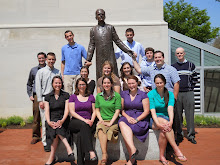Monday, March 2, 2015
The Original Trial: God v. Adam and Eve
Most of us know that the
condition of man in the Garden of Eden is called original innocence, and that
after the Fall, man enters into the state of original justice. Man comes into
this latter state through the original sin, which still affects every man
today. This last term is probably the most well-known. There is, however,
another “original,” one to which we refer much less often: the original trial.
The original trial will
help us understand that even in our sinfulness God will always be just and
treat us according to certain rights. As such He will deliver a just decision
and the vetitum, so we must go back to the Genesis accounts. There
we see how the trial unfolded and how the Church developed the rights that we
freely enjoy today.
The Original Trial
begins in Genesis 3:8. The original Sin has already been committed and Adam and
Eve understand the weight of the crime when they hear God. They hide
themselves—but how does one hide from God? They could not simply jump behind a
bush; their hearts told the truth of the weight of their crime, so in shame
they hide themselves.
Now, God already knows the offense committed and He knows where Adam and Eve are. As a just judge, He must summon or at least cite the parties. So He calls out to Adam, "where are you?" (Gen 3:9). This is the first right of man within the context of a trial. The medieval canonists realized that every man has a natural right to face his accuser. Every man has a right to be summoned or cited in order that that trial to be joined (started). For the 12th century man, this was revolutionary. No longer did the king have the power to simply hand down decisions and execute them. The peasant had a right to be at the trial. This leads us to another natural right.
 |
| "The Expulsion of Adam and Eve From Paradise" by Benjamin West is in the Public Domain |
God, knowing the weight
of the crime, does not need to ask questions to Adam or Eve,
but He does. He investigates the matter at hand. He asks Adam "who told
you that you are naked?" (Gen 3:12). Adam's response is to blame the
woman. God, again, already knowing the depth of the crime, still follows His
investigation and asks Eve "what is this that you have done?"
(Gen 3:13). She, in turn, responds by blaming the serpent. Despite
knowing the events and depth of the crime, God is a just judge and understands
the rights of man. Man has a right to a fair investigation of the acclaimed
crime and the right to defense, even if, as in the case of Adam and Eve, it
will incriminate him further.
In the context of the 12th century, the canonists begin to understand that the king could
no longer determine for himself the decision without due justice within an
investigation. He could no longer violate the right to defend oneself against
one’s accuser.
With the investigation
concluded, the Lord God was able to fulfill His duty as a just judge and
deliver a just decision. The crime, original sin, and decision were declared
publicly in Gen: 14-19 to all parties involved. Included in the decision was
a vetitum: a required prohibition despite the decision being
fulfilled.
The vetitum was in form of Adam and Eve driven out
of the garden. God knew, and the canonists later developed, that man has a
right to hear publicly the offense committed and the decision given to him—this
will help bring him to a state of justice. Decisions were made public to ensure
that the judge would not change the declaration after the trial had closed. A
king could not punish someone without the accused knowing the charges, the
reasons for it, and the decision.
(Parenthetically, this
was an important development in legal history because a 12th century farmer
whose cow was slaughtered by a stronger neighbor was very limited in receiving
compensation. If he went to the king, there would be a trial by combat. If he
went to the pagan priest, there was an ordeal. If he went to the Catholic
Church, there would be a fair trial based on rights and evidence. He would have
a better chance of receiving compensation to buy a new cow).
These rights are vital to today's legal system: the right to be summoned or cited, the right to know the charges, the right to an investigation, the right to a defense, and the right to a just and public decision based on a due process. While it may not be revolutionary to us today, we have these rights because of the Original Trial. The Original Trial shows the judge the way he must precede in the trial in order that the trial does not violate certain rights that even God followed.
Have a question you’d like answered about canonical law? You can email it directly to askacanonlawyer[at]gmail.com
Subscribe to:
Post Comments
(
Atom
)
















No comments :
Post a Comment
We would love to hear from you! Please keep comments respectful and relevant to the topic at hand.